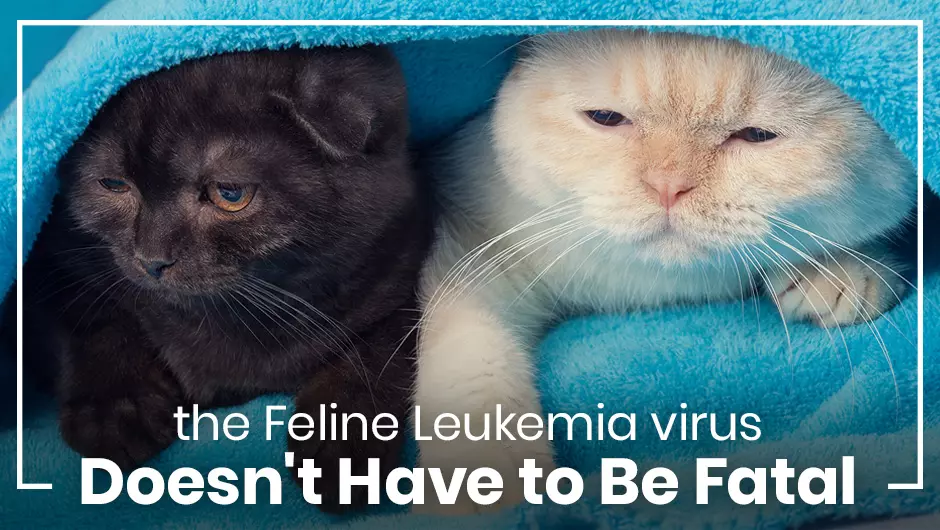One of the biggest misconceptions about the feline leukemia virus, also called FeLV, is that it only causes the type of cancer known as leukemia. Unfortunately, FeLV can cause a host of other health conditions as well. Some of the most common include eye diseases, gastrointestinal distress, immune deficiency, blood platelet issues, reproductive problems, and low body weight. The virus spreads from cat-to-cat contact and is more common in kittens than adult cats. Humans and other species of animals cannot acquire FeLV.
Transmission, Symptoms, and Diagnosis of FeLV
Kittens are more susceptible to this virus because they can easily contract it in utero or when nursing from their mother after birth. Adult cats typically pick up FeLV from sharing litter boxes, food dishes, or bedding with a cat who already has the virus. Other common methods of transmission include mutual grooming, contact with feces or urine, and being bitten by an infected cat. Those with the highest risk of acquiring FeLV are cats who live in communal living situations, a multi-cat household, or who spend unsupervised time outdoors.
FeLV can be difficult to diagnose because it presents with vague symptoms that could indicate a different health condition. Unexplained weight loss, loss of appetite, fever, and general weakness are often the first indications of the virus. If you suspect that your cat has picked up the feline leukemia virus, contact Minnesota Veterinary Hospital to request a blood test.
One of three things will happen when a cat or kitten is exposed to the FeLV virus. Cats with a strong immune system and limited exposure will not go on to develop any complications of the condition. A second category of infected cats will fight off some effects of the virus but not others. This is called latent infection. Persistent infection is another possible outcome. In this case, the infected cat has progressive symptoms that usually cause serious illness within a few years of infection. Adult cats who have had other immunizations are better able to fight off FeLV than kittens with untested immune systems.
Preventing and Treating FeLV
We highly recommend getting the FeLV vaccine if your cat meets any of the risk factors mentioned above. It is also important to test for FeLV anytime your cat is ill, before adding a new cat to the household, when another cat in the home already has FeLV, or when your cat has faced specific risks such as being bitten by another cat.
If your cat is diagnosed as FeLV-positive, he or she needs to be kept strictly indoors. This protects your own cat as well as any others he or she comes into contact with in the neighborhood. Try to keep life as stress-free as possible for your cat with FeLV and be certain to keep all regularly scheduled preventive care exams. Should you move out of our service area, your new vet needs to know about your cat's FeLV status.
Photo Credit: vvvita / Getty Imae

